BAFTA Breakthrough 2024 interviews
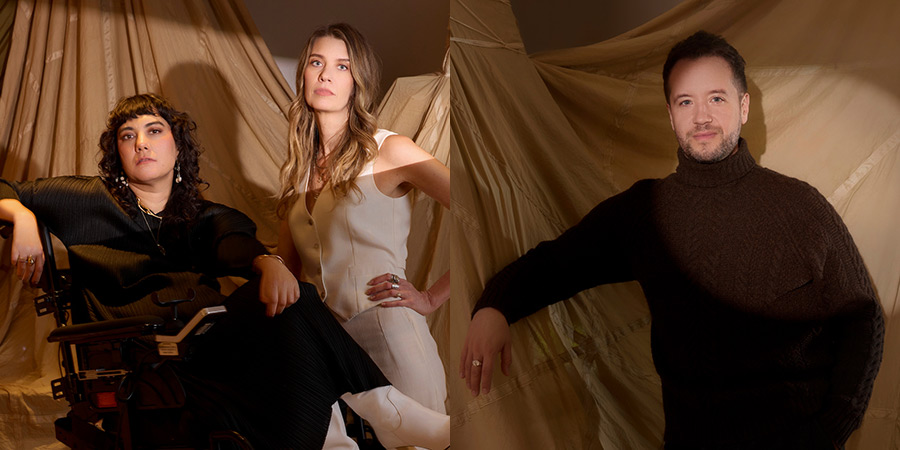
The 2024 BAFTA Breakthrough cohort have been announced; 43 'must-watch' creatives working in film, games and television from the UK, USA and India. Supported by Netflix, BAFTA Breakthrough offers a year-round programme of support and professional development opportunities. You can see the full list of creatives on the BAFTA Breakthrough website.
Amongst this year's list are Kyla Harris and Lee Getty, the creators of BBC Two comedy series We Might Regret This, and Harry Gilbert, the casting director on ITVX sitcom G'wed. We asked them a series of questions.
Kyla Harris & Lee Getty
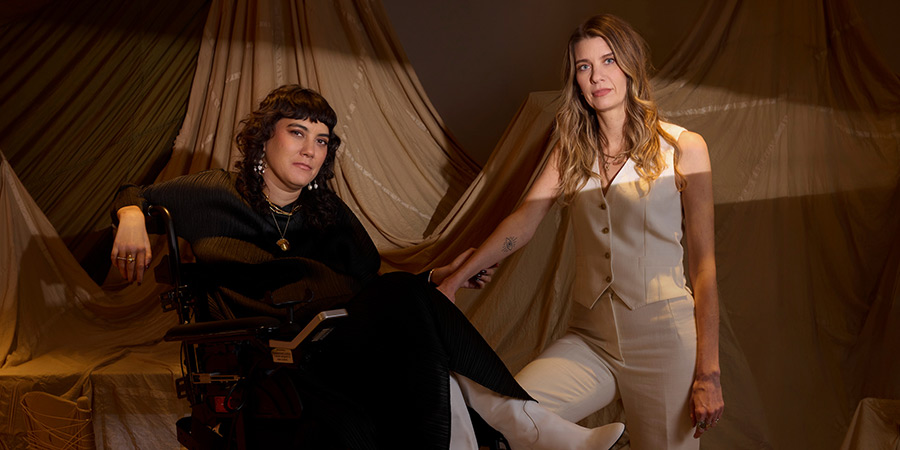
How would you describe what you do?
Lee: We are an interdependent team. Two brains create one. We work incredibly seamlessly together in many different ways, in life and creatively. I think that Kyla and I - as a co-creator, co-writing, co-producing team - work to uncover and explore and express lesser-seen perspectives, unrepresented perspectives; anything like new spaces, new worlds that we can show of our own experiences and others elsewhere.
Kyla: I really like the idea we are an interdependent team that writes, creates, produces and shakes up narratives around underrepresented voices. Lee, I was like 'how do I put this in fewer words?'... This is like how we actually edit; Lee will say the content, and I'll just fillet.
Did you always plan for this career path?
Kyla: Oh God, we have to be individuals now for this question. I always wanted to be an actor. When I had my accident, I just got the feedback from not seeing people like myself represented on screen, and from previous supporters, that I was no longer going to be able to pursue acting. So this feels very much like a full circle moment in terms of performing, but really it was Lee that kind of encouraged and spearheaded and supported me writing because I hadn't really previously written before.
Lee: I was like, 'I'm a visual artist. I don't do words'. I suppose, in my early 20s, I realised that I would like to write and direct and went to film school. That's where Kyla and I met, and then I kind of made that very typical mistake of writing by myself, for myself, and refusing to let anyone in, or refusing even to let Kyla read my work for years and years and years and years while I supported myself in other ways. And it wasn't until I finally decided to become very vulnerable and just force myself out into the world, force my work out and just say, 'okay, wherever I'm starting is where I'm starting, and I will get to where I want to get'. And so mine and Kyla's project is one of many, but it's also our creative bond has really enabled me to move forward and get over my own insecurities. So I think we both sort of supported each other to get past those inner blocks.
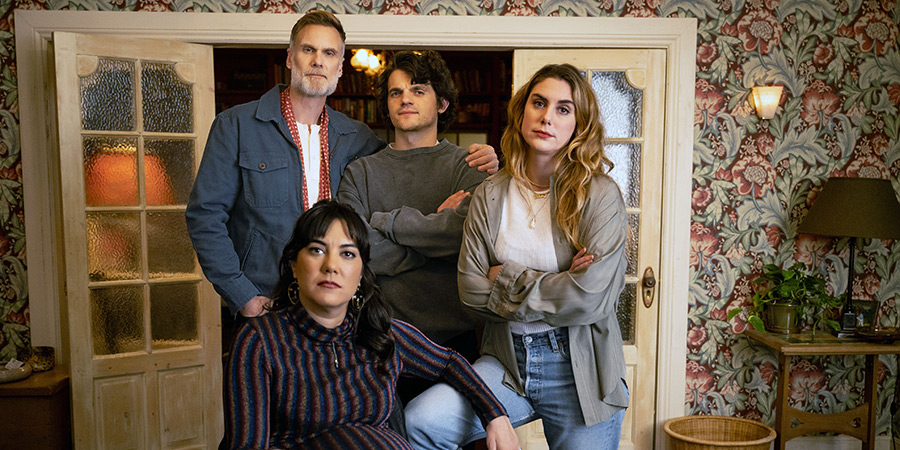
Congratulations on joining the BAFTA Breakthrough cohort. What was your reaction when you heard the news?
Kyla: We called each other and screamed into the phone.... and then started working again.
Lee: We immediately suffered from imposter syndrome.
Kyla: Yes, that's more accurate. We screamed, went 'yay' and then went 'what the fuck are we doing here?'
Lee: No, it was an incredibly happy moment, and we're still, I think, experiencing the excitement and letting it sink in.
What is it about your recent work that you think has propelled you to Breakthrough status?
Kyla: I think that We Might Regret This offers a fresh perspective on what it means to be disabled and human. Disabled people have always been represented as either inspirations or tragedies, whereas we fall apart over taxes just like everyone else. We have difficulty getting out of bed every morning, just like everyone else. I think it's just refreshing to see that disabled people also have the same messiness and joy and aspirations and difficulties as everyone else.
Lee: I would also say that I think that - and this was intentional - it required a lot of vulnerability from our side. Especially Kyla had to really be very brave in what she gave to the world, even of her own body and everything to do with our relationship and our ways of depending on each other, and all of those things.
I think [We Might Regret This] showed a vulnerability that people reacted to and felt appreciative that we had done that, and then that allows them to sort of be vulnerable in return. I think that there's something in that exchange between viewer and creator that is powerful, and that was something that we hope to do, and it seems like we've maybe done.
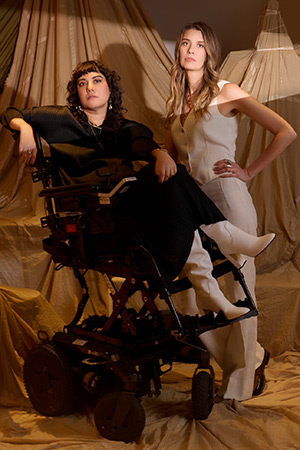
Could you give any tips/advice, for anyone looking to follow in your footsteps?
Kyla: I don't walk, so this is kind of difficult to answer. Sorry. [Laughs]. I would say find your collaborators, find your people, because that's what makes all of the sacrifices and all of the hard work worth it. It's such a difficult industry to be in, so you may as well enjoy it.
Lee: I agree. And there's this sort of preconception that you have to do it alone, or that you have to be kind of brave enough to take it on yourself. I think that's one thing that we've really cracked, is that you don't have to.
You spend so much time with the people that you work with on projects like this - years and years and years - that it's worth really making sure that you have incredible relationships, because that's who you'll be spending most of your time with.
Also, I think there's just a matter of perseverance, as cliché as that is. It's like the resilience to fail and get back up again, be rejected, get back up again, and just keep trying and trying and trying until you find those people, until you get those few opportunities.
Tell us about your next plans...
Kyla: We've been recommissioned for two more series, so that probably.
Lee: We intend to, as we were speaking about before, continue to break new ground when it comes to underrepresented voices and shake things up. Shake up narrative, shake up perspective and ways of looking through different lenses.
Harry Gilbert
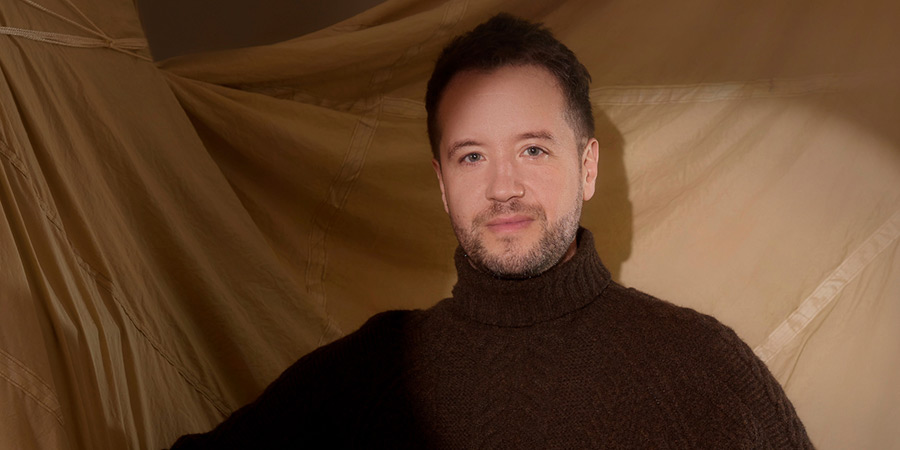
How would you describe what you do?
Casting directors do so much, but I guess in a kind of succinct way: it's finding the best actors to play the roles in a piece of TV, film or theatre that also aligns with the vision of the creator, director and producer of the piece.
Did you always plan for this career path?
No, I didn't. I started as an actor. I guess that's because acting is so visible, and often everyone's first access to the arts is like a little drama club or something. So I was on the route of being an actor, and trained and worked as an actor, and then after a number of years, I wasn't doing the things I wanted to do, and I realised I had these other skills. And, yeah, I moved into casting.
I had done bits of directing and teaching and lots of other things you do when you're not acting. I guess I thought maybe those skills will be put into really good use by working in casting. Once I began, it really quite quickly felt like, "oh, yeah, this is, this is the place for me. This is going to really kind of play into my strengths' and allow me to achieve the things I want to achieve".
Congratulations on joining the BAFTA Breakthrough cohort. What was your reaction when you heard the news?
Oh my God, I couldn't believe it. I sort of made some weird sounds, re-read the email and then jumped up and was like, you know, screamed a little bit, and then went back to work. 'Okay, I have to get on with my day. This is great, but I can't tell anyone'.
I couldn't believe it. It feels like a huge achievement and a real kind of honour, and like the icing on the cake on what's been a really sort of monumental year for me, with G'wed being my first TV project, and then I had my first feature release.
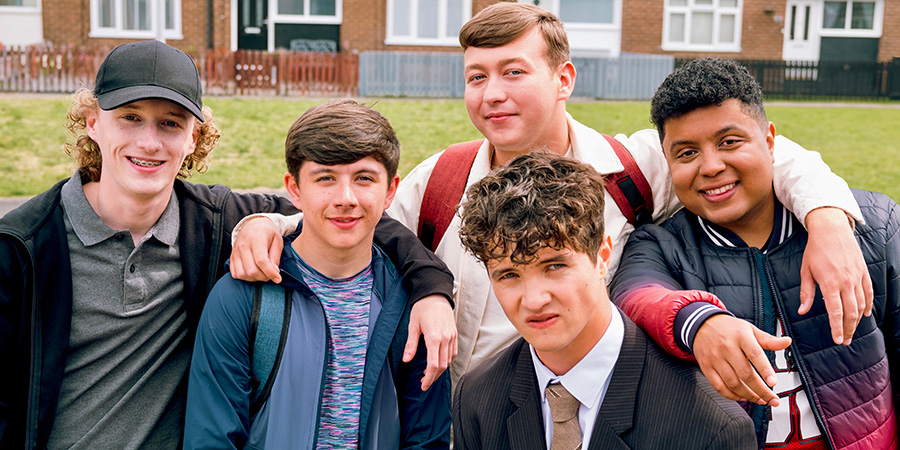
What is it about your recent work that you think has propelled you to Breakthrough status?
Oh, gosh, I think G'wed is a really unique programme. ITV isn't generally known for its comedy, and it [G'wed] presents often unheard voices, working class voices from Liverpool and the material was amazing. The scripts are absolutely brilliant. It really felt like how teenagers talk today, but it also really cleverly subverts stereotypes.
I think where I came into that project was 'how can we find the best people possible that can relate to that world and these characters and bring them to life in a really authentic way'.
Every casting job is quite unique, but particularly with G'wed. There was very few people from Liverpool on traditional casting platforms, so I really had to go out and discover a whole range of new talent.
So I guess maybe it's a combination of that amount of work, and unearthing some amazing young actors that no one's ever seen on screen. A lot of them didn't have agents when I found them. So, yeah, I guess it's maybe the discovery of new talent, andthat that eye for detail and the authenticity of the show and the cast, and how the casting really compliments that.

Could you give any tips/advice, for anyone looking to follow in your footsteps?
When I first started there wasn't a clear route into the industry as a casting director. There are loads of casting directors that have come from many different walks of life. Now there's this amazing course that's run by the NFTS that's been set up by some brilliant casting directors; Jina Jay, Shaheen Baig and Jane Arnell. I'd recommend people looking into that. They're open to people from all walks of life who are interested in moving into casting. So that's a really lovely clear route in.
Then, also, I think just watch stuff, start to develop your taste, start to develop your knowledge of actors. Go to the theatre, watch film, watch TV, and start to look at things like how the smaller roles affect the whole world.
Tell us about your next plans...
I'm in development on a few on a few feature films, and I am going to be casting the third series of G'wed. We've shot the second series - that's going to be released early 2025 - and we already know that ITV have commissioned a third, so that's what is in the pipeline in the near future.
You can find out more about BAFTA Breakthrough via bafta.org
This article is provided for free as part of BCG Pro.
Subscribe now for exclusive features, insight, learning materials, opportunities and other services for comedy creators.

